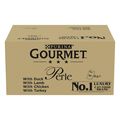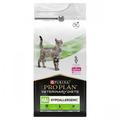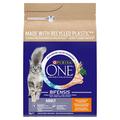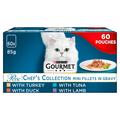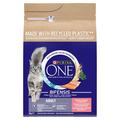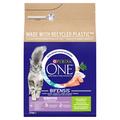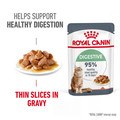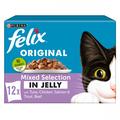Cats can be such fussy customers when it comes to what you feed them. They may like something initially, and then in the blink of an eye they’re refusing to eat it. But fickleness aside, what is the ideal diet for your cat?
Some prefer to feed wet, while others opt for something dry. Some might feed a lifestage-specific food, while others choose for age. Each option has its advantages and disadvantages, and every cat will have different requirements, especially those that are particularly old or young, or in a compromised state of health.
In the wild, a cat’s diet would primarily have consisted of meat and fish. As obligate carnivores, they need to consume a high proportion of meat protein in their daily diet, and need much less carbohydrate than dogs.
In fact, cats are biologically engineered to eat protein over carbs as they have no salivary enzymes to break down starches. They also have low rates of glucose uptake in the intestine and don’t produce the enzymes needed to digest carbohydrates.
Therefore, whatever you’re feeding needs to contain at least 26% protein (according to the AAFCO), but many vets recommend a much higher level of 35-45% protein. In comparison, carbohydrates should make up no more than 5% of the diet. This is key for a healthy, happy feline.
Is wet or dry food best?
Some cats have a preference, but most will be happy to eat either. The advantage of feeding a wet food is that they contain roughly 78% water, which is great for cats as they are notoriously bad at drinking enough water. In comparison, dry foods typically contain 10% water, or even less.
Dry foods typically contain more carbohydrates, but are good for cats with dental issues. Cats fed exclusively wet diets are more prone to plaque and tartar build-up as they leave soft deposits along the gumline. Dry foods, on the other hand, are abrasive and can help keep this to a minimum.
Semi-moist foods contain as much as 35% water but won’t have the added dental benefits.
It is important to weigh up the pros and cons of each option before choosing, and consult your vet if you are concerned or if your pet has existing health problems.
While most cats will thrive on any high protein diet providing it is balanced and complete, there are more tailored foods out there for pets with specific conditions and requirements, so shop around and ask for advice if you’re not sure.
Written by: Hannah

